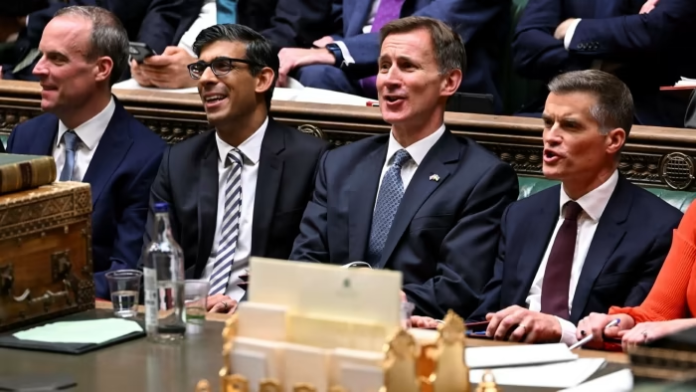Labour’s Rachel Reeves is taking a light-touch approach to politics, insisting voters should reflect on whether they are better or worse off after 13 years of Tory rule, The New Statesman reports.
Jeremy Hunt, the Chancellor, has been accused of setting a series of economic traps for a future Labour government with impossible and unsustainable spending plans.
Both Hunt and Reeves agree that finances are incredibly tight. They are equally concerned about post-pandemic unemployment, agreeing that any decent future requires better growth. Without growth, a Starmer Labour government would soon have lost support and faith.
People grow or fail depending on millions of individual decisions not to work; to use company profits for personal acquisitions rather than new equipment; to hire and train new workers or not; to re-mortgage a startup loan or dodge the risk.
Yet these animal spirits are fuelled or dampened by national morality, not politics. From Brexit, Johnson and Covid to Truss explosion, morale has plunged, with many polls confirming this. For instance, the last year’s Ipsos poll revealed that seven in ten people agreed the UK was in decline, with only one in ten disagreeing.
However, the real competition is convincing business who has a more credible, long-term and consistent view of where the country is going.
On November 27, at his global investment summit at Hampton Court Palace, Prime Minister Rishi Sunak announced that major companies had invested £29.5bn in new UK projects and capital, three times the amount raised at the last summit in 2021. The investment also involved the creation of “thousands of jobs across the UK in our most innovative sectors, including tech, life sciences, renewables, housing and infrastructure.”
The government is struggling to find international funding for the Sizewell C nuclear power plant in Suffolk. After being turned down by Chinese investors, which cost the UK taxpayer £100 million, the office is trying to attract Abu Dhabi.
CEOs of huge companies, such as Honda, EDF, Barclays, Blackstone, Toyota, the Washington Post and more, met Keir Starmer and Rachel Reeves, as they can read polling results and expect Labour to be in power, perhaps, for a decade.
Starmer is constantly being presented as a future Prime Minister. For instance, he will be attending the Cop28 climate conference in Dubai advocating green investment. The Conservatives have focused their economic counterattack on Labour’s pledge to invest £28 billion a year in green energy and a net zero industrial revolution.
Due to the damage done to the public realm over the past 13 years, the first years of a Labour government will inevitably feel like drudgery rather than revolution. However, in time, if growth comes, the atmosphere will revive.
For the Tories, the paradox is that they need a blazing spirit of optimism and business investment to improve their political fortunes. However, this optimism depends on the perception of their political status, which remains contentious.
